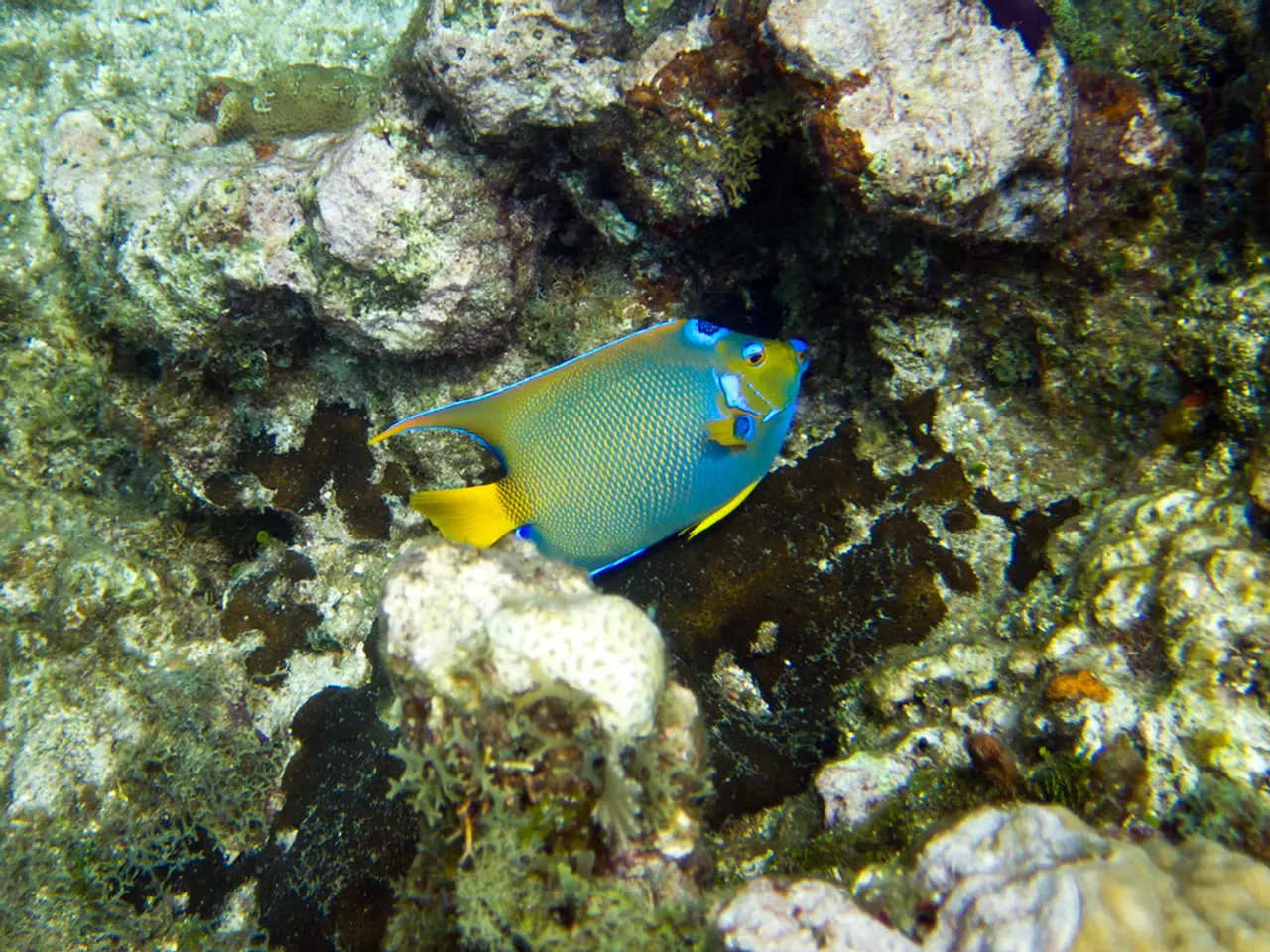Increased funding for ocean protection necessitates increased blue financing, according to Lagarde.
The health of the world's oceans is a matter of increasing concern, with scientists warning that the ocean may be reaching a tipping point. The vital role the ocean plays in climate stability and economic prosperity is under threat due to pollution, land and sea changes, and overexploitation, leading to physical risks and changes in economic activity, translating into financial risks.
Recent research suggests that marine heatwaves may be accelerating, spreading across the globe. This alarming trend has been highlighted by the Taskforce on Nature-related Financial Disclosures (TNFD) in their final guidance for fishing, marine transportation, and cruise lines. The TNFD has also launched a consultation on measures and disclosures for ocean and marine-related nature issues, with a deadline of 1 October.
In response to these concerns, the Network for Greening the Financial System (NGFS) and the WWF have both published comprehensive guidance in June 2025 to help central banks and regulators assess and manage ocean-related risks. The WWF's briefing emphasizes systemic exposures to nature-related risks in the ocean that central bankers and regulators need to address.
The NGFS guidance stresses the importance of budgeting for resilience rather than reacting after disaster strikes. This approach is echoed by Christine Lagarde, the President of the European Central Bank (ECB), who has urged more blue financing to protect marine life and coasts. Lagarde has also emphasized the need for nature-based solutions such as coral reef restoration, going beyond just reducing emissions.
The value of the ocean's assets is staggering. Estimated to be worth at least US$24mn, and if the sustainable ocean economy were a nation, it would have a gross value added of $2.5tn, making it the eighth largest economy. This underscores the importance of protecting and preserving the ocean for future generations.
The WWF plans to produce a more extensive guide on recommendations to help central banks assess and manage ocean-related risks. This guide will undoubtedly be a valuable resource in the fight to preserve the health of our oceans.
As the world transitions to a more volatile world, adaptation is needed. Building sea walls and surge barriers is crucial to protect coastal communities from the impacts of climate change. However, it is clear that more needs to be done to protect and preserve our oceans.
The page was last updated on June 17, 2025. The ocean remains a vital resource, and it is essential that we take action to protect it from the threats it faces. The fight to preserve our oceans is far from over, but with the guidance and resources available, we can make a difference.
Read also:
- Understanding Hemorrhagic Gastroenteritis: Key Facts
- Stopping Osteoporosis Treatment: Timeline Considerations
- Tobacco industry's suggested changes on a legislative modification are disregarded by health journalists
- Expanded Community Health Involvement by CK Birla Hospitals, Jaipur, Maintained Through Consistent Outreach Programs Across Rajasthan








